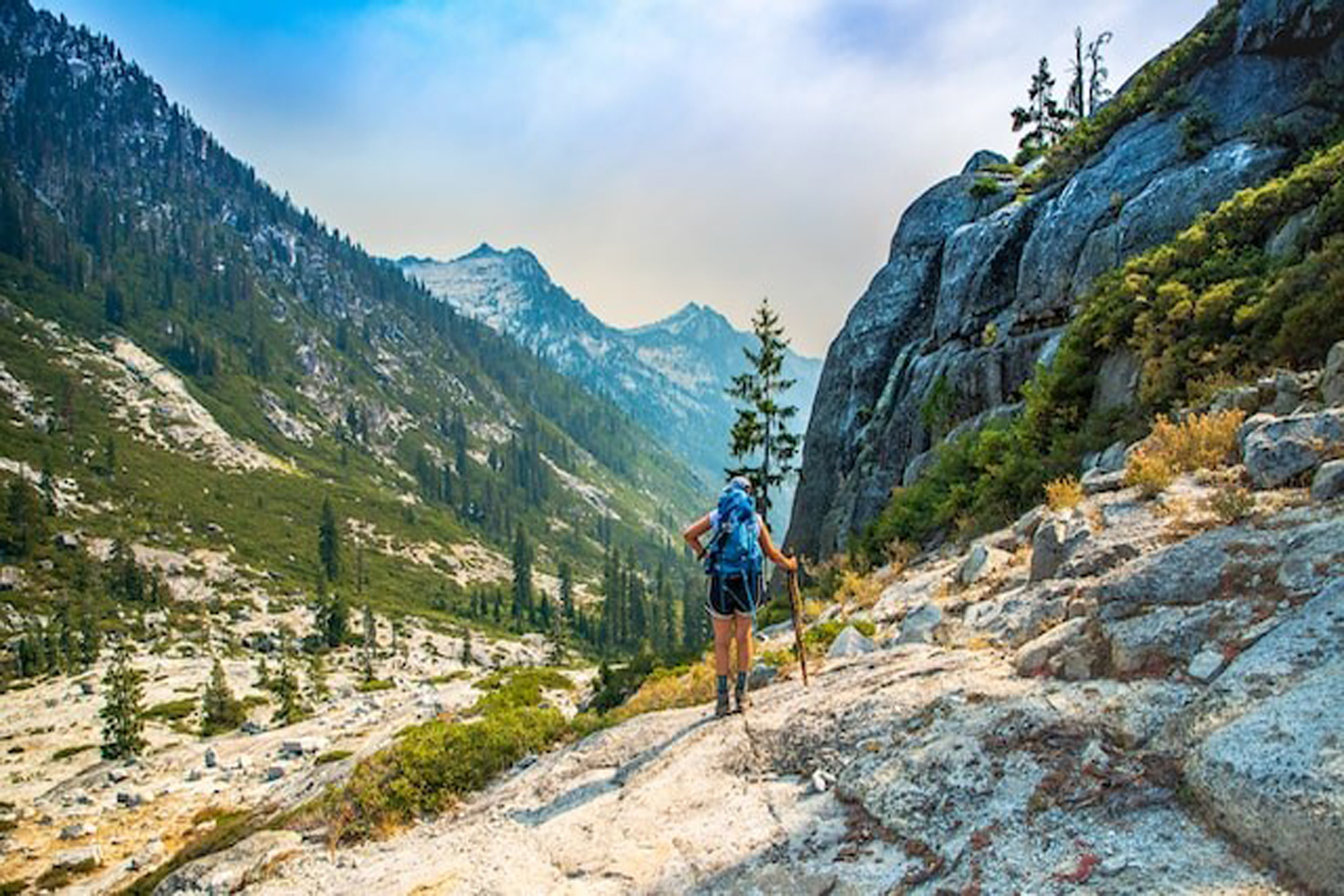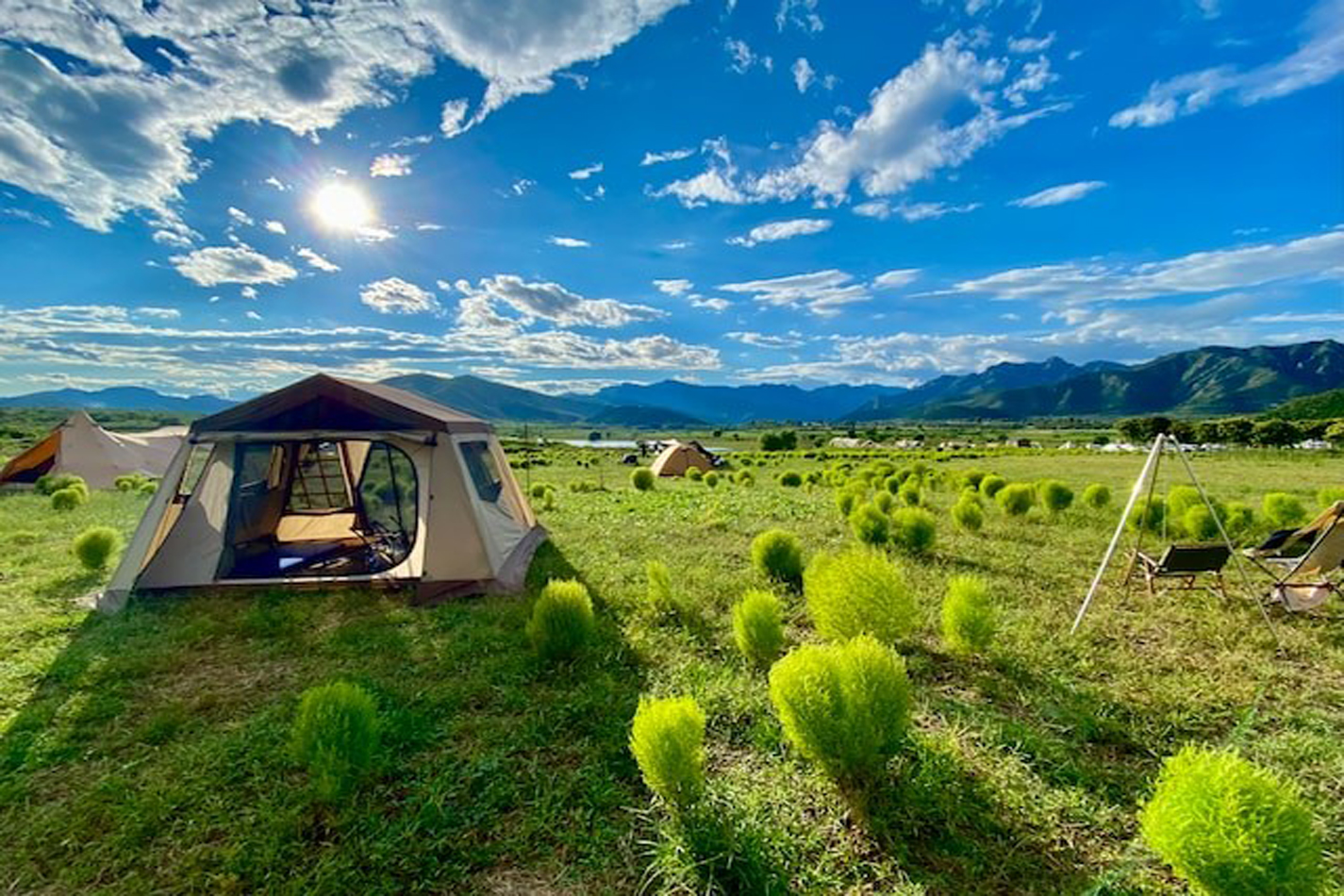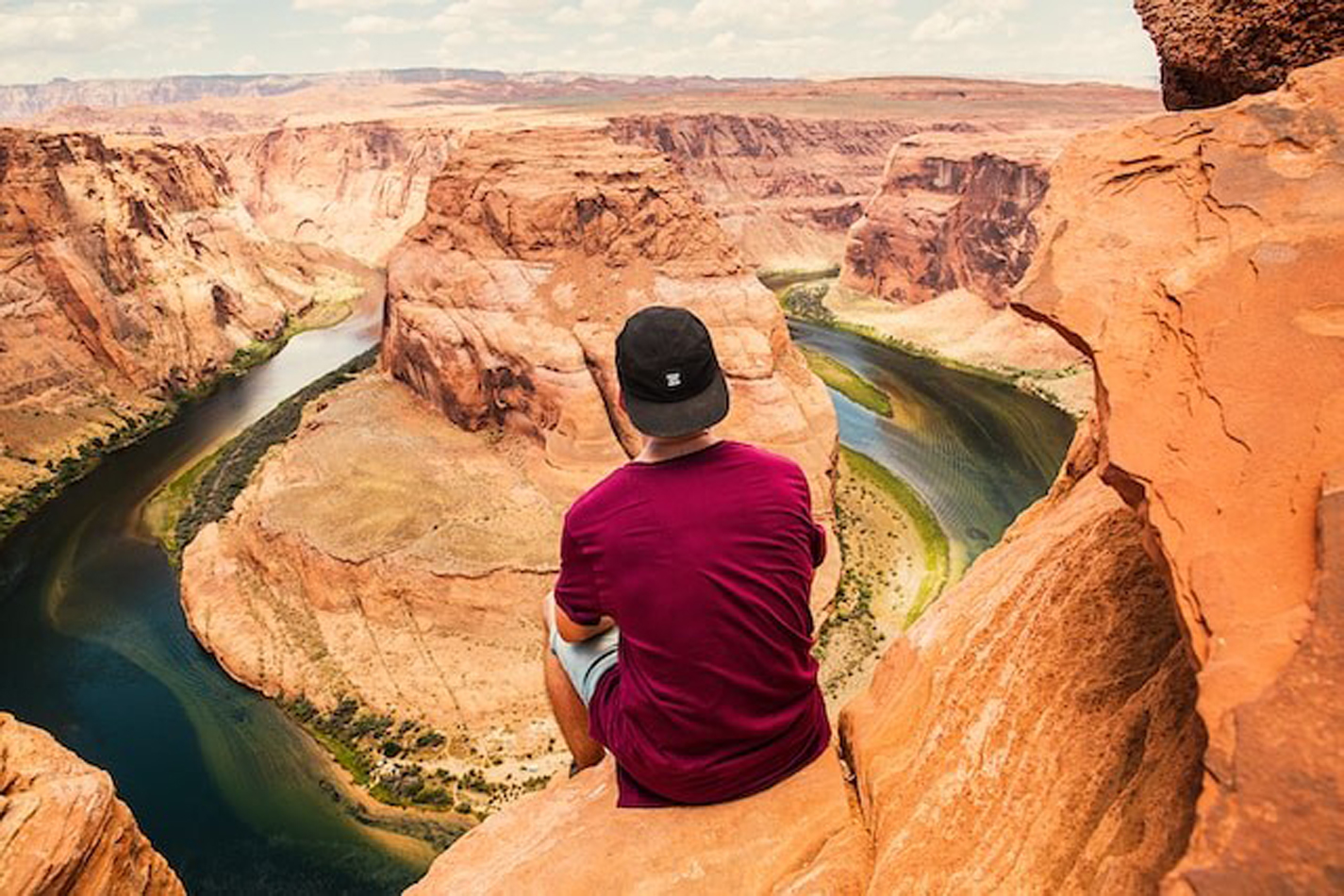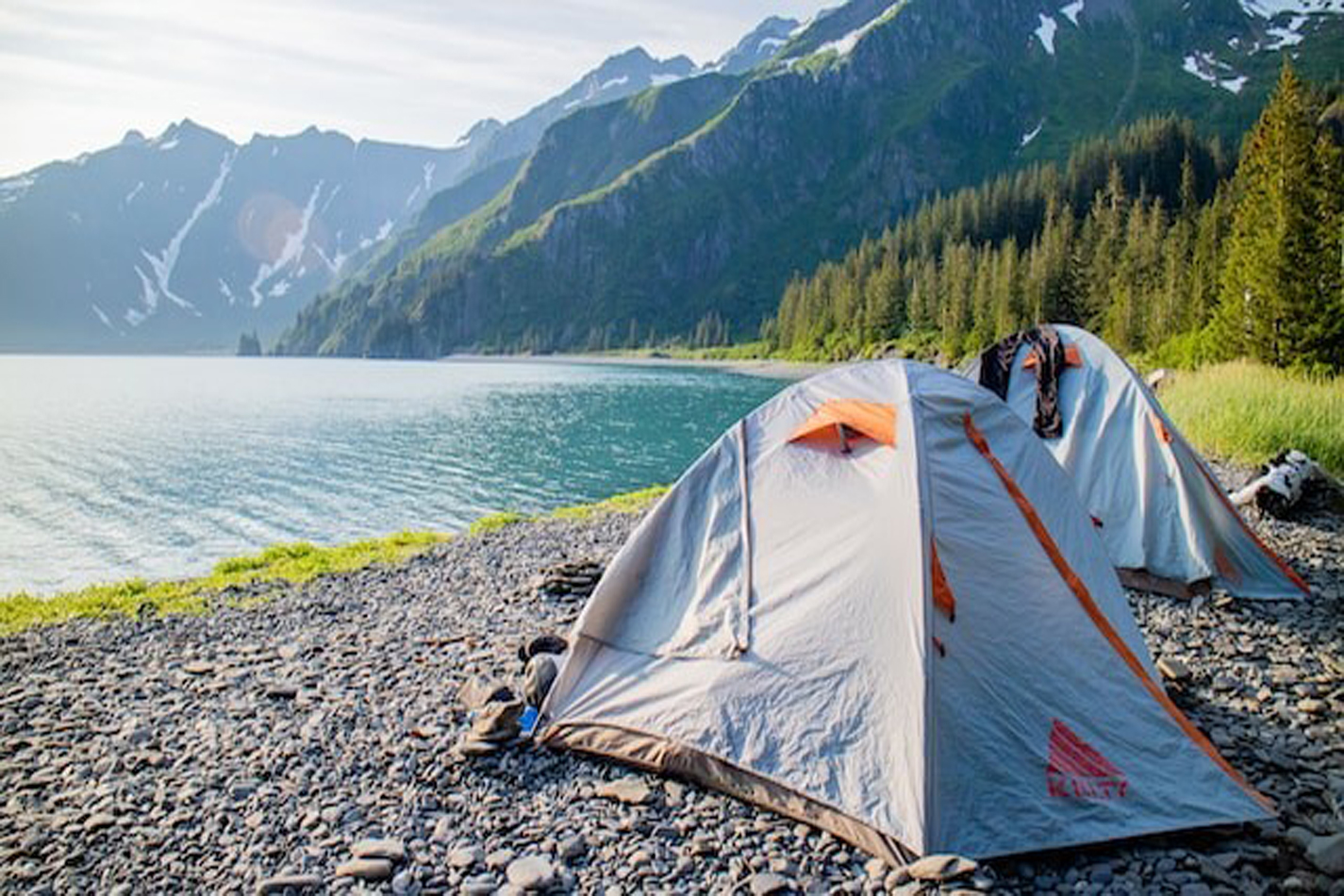Embarking on a solo wild camping adventure can be both exhilarating and nerve-wracking. In this article, we will decode the fear surrounding solo camping in a familiar yet challenging environment. From battling anxiety to embracing the beauty of unexpected moments, this article unfolds the journey of overcoming fears and finding comfort in solitude.

The Decision to Go Solo
Choosing to go solo isn't a walk in the park. The reality is that everyone like me go through the same hesitation, personal struggles, and moments of uncertainty before finally setting out on a wild camping expedition.
It's a journey into the unknown, where the decision to go solo is a leap of faith, filled with personal challenges and moments of hesitation. This stepping into the unknown is a bit nerve-wracking, filled with personal challenges and those moments where you're not entirely sure. But hey, that's the thrill of it – taking the leap and embracing the solo adventure, and remember, every night under the stars is a step towards self-reliance and unshakable confidence in your outdoor abilities.
Embracing the Fear
Understanding that fear is a natural part of solo camping sets the foundation for conquering it. Embracing the fear as a challenge to overcome is the first and crucial step. Talk to friends, seek advice, and put your fears into words.
Accepting that fear is a natural response to the unknown is the first step in normalizing the emotion. Solo camping often involves stepping out of one's comfort zone, and acknowledging fear is a realistic acknowledgment of this challenge.
Embracing fear as a challenge presents an opportunity for personal growth. Conquering fear requires facing it head-on, and the process of overcoming these challenges contributes to resilience and self-discovery. Recognizing fear as a challenge shifts the mindset from viewing it as a hindrance to seeing it as an opportunity for personal triumph.
Familiarity Breeds Confidence
Contrary to the saying, "familiarity breeds contempt," when it comes to solo camping, a familiar location can be the key to instilling confidence and comfort. Choosing a spot you know well transforms the solo camping experience, making it not only enjoyable but also reassuring.
Being in surroundings you know well allows you to relax and enjoy the experience without constantly worrying about the unknown. This familiarity not only contributes to a more enjoyable solo camping trip but turning your chosen camping spot into a comforting haven where you can truly appreciate the serenity of solo outdoor adventures.
Logical Thinking as a Shield
Engaging your logical brain by asking yourself questions and evaluating the realistic nature of your fears helps dispel irrational thoughts, providing a sense of control. Visualizing your tent from an outsider's perspective can detach you from fear, allowing you to approach challenges with a logical mindset.
Overcoming Common Fears
Embarking on a solo camping trip is like diving into a self-discovery adventure surrounded by nature's beauty. But hold on, it's not all smooth sailing. Solo camping can trigger various fears and anxieties. Are you scared of the dark, worried about being alone, or concerned about finding a suitable spot to pitch?
Thinking about camping alone can be pretty scary if you haven't tried it before. But you know what? Those fears and worries usually fade away once you've got some experience under your belt. Here are some of the typical worries people have about solo camping and how to overcome it:
1. The Fear of Getting Caught
This fear often arises from concerns about trespassing on a private property, camping in prohibited areas, or violating camping regulations. To ensure a worry-free outdoor experience it is highly recommended to research and understand the rules and regulations of the camping location, obtain necessary permits if applicable and adhere to Leave No Trace principle.
2. Fear of Wild Animals
Educate yourself on local wildlife behavior and habitats. Use bear canisters for food storage, keep a safe distance, and make noise while hiking to alert animals. Familiarity and preparation reduce the risk of negative encounters.
3. Dealing with Strange Noises in the Wild
Recognizing the sounds of nature, such as animals and wind, helps distinguish between normal occurrences and potential threats, easing anxiety. Understanding and normalizing natural sounds alleviate anxiety.
Bring familiar items for comfort, like music or a white noise machine. Gradually expose yourself to night sounds in controlled settings before camping. Minimize unnecessary anxiety by using earplugs or headphones to drown out noises, creating a cocoon of tranquility within your tent.
4. Tackling Darkness Anxiety
The fear of darkness, known as Nyctophobia, is a common and innate human emotion. This fear often stems from the inability to see potential dangers in low-light conditions, a fear of the unknown, or cultural influences associating darkness with danger. Overcoming the fear of darkness during solo camping involves several strategies:
Combat fear of the dark by taking nighttime walks to familiarize yourself with the surroundings. This practice helps eliminate the anxiety associated with solo camping in the dark.
Opt for camping during a full moon, ensuring a clear sky. The natural light reduces the fear of darkness, offering a unique and serene experience.
Ensure you have reliable lighting equipment, such as a headlamp or flashlight. Bring items that provide comfort and a sense of security. This could include a familiar blanket, a favorite book, or soothing music.
5. Fear of Disliking the Experience
Start with day trips to assess comfort levels before committing to overnight stays. Choose familiar locations initially and focus on the aspects you enjoy. Flexibility and gradual exposure help build positive camping experiences.
The Importance of Familiar Locations
The importance of choosing familiar locations for solo camping lies in the foundation of a successful and secure outdoor experience. Familiarity with the terrain reduces the risk of getting lost, allowing solo campers to navigate confidently and focus on the joys of the journey.
Knowing the area enhances situational awareness, crucial for identifying potential hazards and adapting to changing conditions. Moreover, familiarity breeds a sense of comfort and ease, reducing stress and anxiety associated with the unknown.
Opting for familiar locations during solo camping not only ensures safety but also paves the way for a more enjoyable and rewarding wilderness adventure.
Preparing for Your First Solo Camping Trip
Embarking on your initial solo camping adventure requires meticulous planning. Choose a familiar and easily accessible location, and thoroughly prepare by selecting essential gear, checking equipment, and practicing camping skills for confidence.
1. Choosing the Right Location
Selecting the appropriate camping site is crucial for a successful solo trip. For first-time solo campers, staying closer to your car or a familiar area can provide a psychological safety net, allowing for an easier retreat if needed.
Ensure the chosen location aligns with your skill level and preferences, providing a secure and enjoyable environment for your solo camping experience.
2. Creating a Cozy Camp
Personalizing Your Space. Enhance the comfort of your campsite by bringing personal items like fairy lights, books, or a camera. Creating a cozy environment can shift your focus from fear to enjoyment.
3. Having a Backup Plan
In solo camping, unforeseen circumstances can arise, making a backup plan essential. Carry extra supplies, know alternative routes or nearby shelters, and inform someone about your trip details for safety. Being adaptable ensures a safer and more enjoyable experience.
4. Ensuring Car Safety
As your vehicle is crucial for reaching and departing from the camping site, ensure its safety. Perform pre-trip vehicle checks, carry essential tools and a spare tire, and be mindful of fuel levels. Plan your route, inform someone of your travel plans, and consider the condition of roads to enhance overall car safety during your solo camping trip.
Battling Anxiety and Building Confidence
Battling anxiety and building confidence during solo camping is a gradual process that involves acclimating oneself to the challenges of outdoor solitude. It's essential to start with shorter trips, allowing time for a gradual adjustment to the experience.
Begin in familiar environments, mastering essential skills such as setting up camp, navigating, and cooking. As confidence grows, progressively explore more remote or unfamiliar locations. Facing and overcoming small challenges, whether related to wildlife encounters or unexpected weather, contributes to a sense of accomplishment and boosts self-assurance.
Solo camping becomes a transformative journey, fostering resilience, independence, and a deeper connection with nature while gradually alleviating anxiety through incremental exposure to the joys and challenges of outdoor solitude.
Testing and Mastering Tent Setup
1. Importance of Setting Up Camp
Setting up camp properly is crucial in solo camping for several reasons. It streamlines the pitching process, saving time and reducing potential stress. Additionally, being well-acquainted with the tent contributes to efficient use of space, allowing solo campers to organize their living area effectively.
A strong understanding of tent setup positively influences the solo camping experience, fostering a sense of competence, self-sufficiency, and a deeper connection with the outdoor environment. Overall, knowing your tent well promotes self-reliance, boosting confidence in handling equipment independently.
2. Practice Makes Perfect
Devote time to perfecting your camping setup through regular practice. Focus on evaluating tent features, such as ease of assembly and overall durability. Practicing your setup routine not only enhances your skills but also familiarizes you with your gear's capabilities.
3. Evaluating Tent Features
When preparing for solo camping, a critical aspect is thoroughly assessing the features of your tent, as it serves as your primary shelter in the wilderness. Key consideration include ease of setup, durability, weather resistance, portability, interior space and comfort, ventilation, and versatility.
By thoroughly evaluating these tent features, you not only enhance your camping skills but also ensure that your shelter is reliable, comfortable, and well-suited to the challenges of solo camping.
4. Importance of Gear Reliability in Solo Camping
Ensuring the reliability of your gear is paramount in solo camping. Dependent on your equipment for safety and comfort, a thorough check minimizes the risk of malfunctions, providing confidence that your gear will perform effectively in the solitude of the wilderness.
This can be ensuring by assessing the materials and construction for resilience, verify that each piece of equipment performs its intended function, withstand diverse weather conditions, how easily and efficiently you can deploy and use each item.
Additionally, check if gear is lightweight and manageable for solo transport, confirm that safety elements, like stove shut-off mechanisms, are functional. You can also gather some insights from user reviews and product ratings for additional feedback on reliability.
Enjoying the Unplanned Moments
Solo Wild camping as a journey filled with unexpected surprises. You might start with a rough plan, but the real excitement comes from adapting to changes and finding beauty in the unknown. whether it's stumbling upon a hidden trail or discovering a perfect spot to set up camp.
These unplanned moments make your solo camping adventure truly special, adding a spontaneous touch to your experience.
So, as you explore the wilderness on your own, enjoy the twists and turns, cherish the surprises, and let the unplanned moments create the most memorable stories of your solo wild camping trip.
Facing Wildlife Encounters
Encountering wildlife during solo camping is a common and thrilling aspect of the outdoor experience. Wildlife encounters can manifest in various forms, from curious critters approaching the campsite to observing animals in their natural habitat.
It's crucial to stay calm and composed during these encounters, respecting the animals' space and avoiding sudden movements. Keeping a safe distance is key, as close proximity can be stressful for the wildlife and potentially dangerous. Instead of panicking, take the opportunity to appreciate the surrounding nature and observe these creatures in their element.
Carrying bear spray or other deterrents, depending on the region, is advisable for added safety. By maintaining a calm demeanor and respecting the natural environment, solo campers can turn wildlife encounters into memorable and enriching moments during their solo camping adventures.
The Satisfaction of Pushing Through
While solo camping, individuals often encounter situations that may initially be uncomfortable or difficult. This could include adverse weather conditions, unexpected setbacks, or moments of solitude. However, pushing through these uncomfortable situations and demonstrating perseverance not only enhances one's survival skills but also contributes to personal growth and self-discovery.
In the face of challenges, solo camper develops resilience, problem-solving abilities, and a heightened sense of self-reliance. The satisfaction derived from successfully navigating through these situations becomes a crucial aspect of the solo camping experience. It goes beyond the mere act of spending time alone in nature; it becomes a journey of self-discovery, inner strength, and the fulfillment that comes from conquering the obstacles that arise in the wilderness.
Embracing the discomfort and challenges is, therefore, considered an integral part of fully realizing the benefits and rewards of solo camping.
A Morning in the Wilderness
1. Sunrise Serenity
In the tranquil embrace of a wilderness morning during solo camping, one is captivated by the breathtaking beauty of a sunrise. As the first rays of light illuminate the surroundings, the camper takes a moment to appreciate the serenity that envelops the natural setting.
2. Checking Tent Conditions
With a steaming cup of coffee in hand, you take a moment to soak in the tranquility, appreciating the stillness of the morning. While checking that your trusty tent weathered the night, there's a sense of comfort and accomplishment in knowing you've created a secure haven amidst the untamed terrain.
3. Wildlife Wake-Up Call
Recounting encounters with curious local wildlife, from rustling leaves to distant calls, adds an extra layer of thrill to your solo camping escapade. This immersive connection with the surroundings and the elements encapsulates the essence of solo camping, offering a unique and soul-refreshing retreat in the wilderness.
Acknowledging Imperfections
It is highly important to understand the fact that every solo camping experiences are not always perfect and its equally important to highlights the genuine, unfiltered aspects that are often overlooked in mainstream depictions.
Solo camping comes with its share of challenges and imperfections, contrary to idealized portrayals. These challenges may include dealing with unexpected incidents, coping with harsh weather conditions, feelings of loneliness, and encountering wildlife.
By acknowledging these realities, individuals interested in solo camping can better prepare for a more authentic and potentially demanding outdoor experience.
The Reality of Wild Camping
Wild camping typically involves setting up camp in natural, undeveloped areas, away from established campsites. It often goes hand in hand with solo camping, as individuals seek a more immersive and secluded outdoor experience. Solo camping in the wilderness allows for personal exploration, self-reliance, and a deeper connection with nature, as individuals navigate and camp independently. The combination of wild and solo camping offers a unique opportunity for solitude, self-discovery, and a closer bond with the natural environment.
If someone really seeks an authentic experience of solo camping, venturing off the beaten path and into more secluded areas deep in the wilderness would likely provide a truer taste of the solo camping adventure.
Conclusion
The key takeaways and reinforces the idea that solo wild camping is a personal journey where comfort, confidence, and the freedom to decide take precedence.
Frequently Asked Questions
Is solo camping safe, especially for beginners?
Solo camping can be safe for beginners if proper precautions are taken. Choosing familiar locations and being well-prepared can significantly enhance safety.
What gear is essential for a solo camping trip?
Essential gear includes a reliable tent, suitable clothing, sleeping bag, cooking equipment, safety items, and navigation tools.
How do I overcome the fear of camping alone?
Overcoming the fear involves starting in familiar places, having a backup plan, and gradually exposing oneself to the solo camping experience.
How can one overcome the fear of wildlife encounters?
Stay calm, avoid direct confrontation, and store food securely to minimize wildlife encounters. Besides, it’s equally important to understand and respect the surrounding environment.
Is solo camping suitable for everyone?
Solo camping is a personal choice, and not everyone may find it suitable. Individuals should assess their comfort levels. It's acceptable to choose alternative experiences if solo camping doesn't bring joy.



